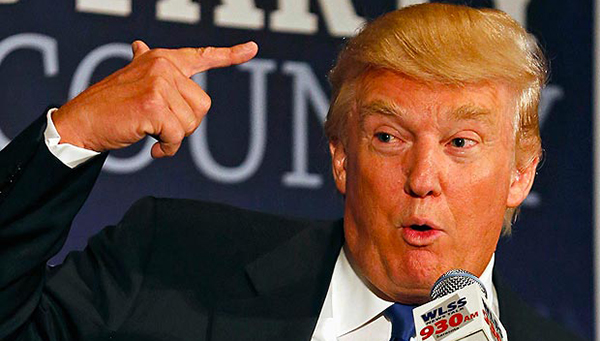
Should psychiatrists tell voters what they think about Trump?
Despite Hilary Clinton’s recent claims that Donald Trump is temperamentally unsuited to be president and her suggestion that he may be unhinged – clinicians have steered clear of volunteering their professional opinion in the public forum. There is a reason for this.
According to an American Psychiatric Association regulation known informally as The Goldwater Rule, psychiatrists are not allowed to volunteer their opinion on the mental health of a public figure without having had a private consultation with the individual, and, what’s more, received their authorization to make a public statement. There is provision, however, for psychiatrists to comment on more general issues of mental health (and this often happens). A very similar rule applies to psychologists.
The advantage of this is, according to Susan H. McDaniel, president of the American Psychological Association, that psychiatrists and psychologists don’t give the impression of having “a professional relationship … with people in the public eye”.
One disadvantage is that voters can only access amateur psycho-babble. Here’s a recent Freudian account of Trump from New York Review of Books contributor Elizabeth Drew:
“Trump just doesn’t appear to have become a fully-formed adult. He is unable to deal in nuance or seem to understand how much of life, and certainly governing, involves compromise. He wants his way and when he doesn’t get it the result is a temper tantrum of some sort. The Freudians would say that Trump is all id, the id that’s never been brought to heel.”
A notable exception to the rule is Northwestern University psychology professor Dan P. Adams. Adams has in recent years written a number of articles (and even a book) on the temperaments of politicians. This month he published a lengthy and detailed psychological portrait of Trump in The Atlantic, arguing that with his “well documented life history” one can construct “develop a dispassionate and analytical perspective… drawing upon some of the most important ideas and research findings in psychological science today.”
Adams had this to say about Trump:
“In sum, Donald Trump’s basic personality traits suggest a presidency that could be highly combustible. One possible yield is an energetic, activist president who has a less than cordial relationship with the truth. He could be a daring and ruthlessly aggressive decision maker who desperately desires to create the strongest, tallest, shiniest, and most awesome result—and who never thinks twice about the collateral damage he will leave behind. Tough. Bellicose. Threatening. Explosive.”
But do you need a psychology degree to write that?
- How long can you put off seeing the doctor because of lockdowns? - December 3, 2021
- House of Lords debates assisted suicide—again - October 28, 2021
- Spanish government tries to restrict conscientious objection - October 28, 2021
